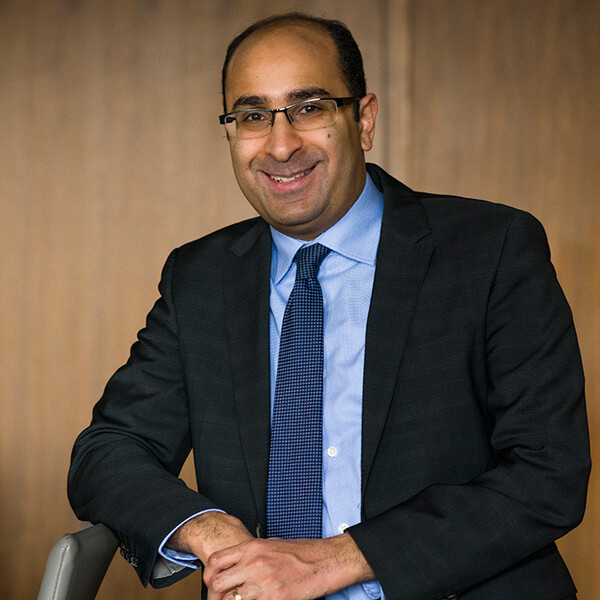Sleep Disorders and Cognition
Spotlight On: Dr. Mark Boulos

March 21, 2023
Getting a good night sleep is essential for our health. Good quality sleep allows the body and brain to recharge, and helps to prevent disease. Dr. Mark Boulos’ work investigates just how important sleep is, examining how sleep disorders impact risk for stroke, dementia, cognitive impairment, and other neurological outcomes.
Dr. Boulos is a neurologist at Sunnybrook Health Sciences Centre, and a researcher at Sunnybrook Research Institute and the Hurvitz Brain Sciences Program. He is also an Associate Professor in the Division of Neurology at the University of Toronto, and completed a fellowship and Master’s degree focusing on the association of sleep disorders with stroke. He became interested in this area upon noticing that the prevalence of sleep disorders is high, but they are often overlooked and undertreated – despite treatment being fairly straightforward and cost-effective. Since sleep disorders are one of the few modifiable risk factors for cognitive impairment, he saw this as an opportunity to pursue groundbreaking research, with the potential to change outcomes.
It’s long been understood that sleep affects cognition. Sleep apnea is the sleep disorder most strongly linked with cognitive impairment and dementia. In sleep apnea, you frequently stop breathing in your sleep, and this results in multiple drops in oxygen throughout the night. These drops in oxygen can affect the brain, causing damage to small blood vessels among other harmful changes; decreases in oxygen can also put strain on the heart. Sleep apnea can also cause ‘arousals’, which are repetitive awakenings from sleep during night-time rest; arousals can also negatively affect the brain.
Dr. Boulos’ research program has a particular interest in home-based sleep apnea testing. The largest barrier to the diagnosis and treatment of sleep apnea is the need to visit a sleep laboratory for monitoring of sleep (called polysomnography). It can be an uncomfortable experience, especially for people living with cognitive impairment. By using ambulatory, portable home-based sleep testing, Dr. Boulos’ research program hopes to facilitate the diagnosis and treatment of sleep apnea, and improve outcomes for people living with cognitive impairment.
One of Dr. Boulos’ recently published studies, written by Master’s student Savi Costa, shows a promising link between treating sleep apnea and improving cognitive outcomes. The study showed that if people living with both sleep apnea and cognitive impairment stuck to treatment with a CPAP machine, their cognition improved. A CPAP (continuous positive airway pressure) machine is worn at night, and delivers a stream of air into someone’s airways through a mask and tube. The more hours someone used their CPAP machine, the more their cognition improved, which was shown via higher scores on a cognitive test called the Montreal Cognitive Assessment (MoCA).
Dr. Boulos looks forward to continuing his research efforts in the areas of sleep, stroke, and cognition.
